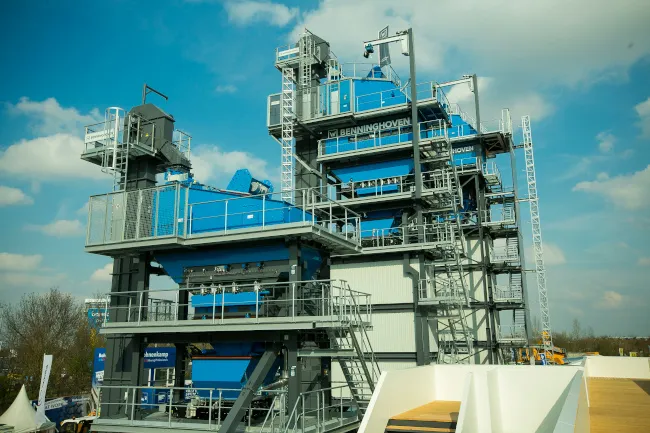Bitumen plant manufacturer EmulBitume unveiled at the major Pavement Preservation and Recycling Summit (PPRS) in Paris the company’s first storable cold mix-mini plant specifically for pothole repair work.
The semi-automated plant has been designed for small batches suitable for efficient pothole maintenance, making the plant an important product for today’s asset management companies, said EmulBitume.
EmulBitume’s mini-plant eliminates the cost of handling large quantities of cold mix in bags becaus
May 19, 2015
Read time: 2 mins

Bitumen plant manufacturer 209 EmulBitume unveiled at the major Pavement Preservation and Recycling Summit (PPRS) in Paris the company’s first storable cold mix-mini plant specifically for pothole repair work.
The semi-automated plant has been designed for small batches suitable for efficient pothole maintenance, making the plant an important product for today’s asset management companies, said EmulBitume.
EmulBitume’s mini-plant eliminates the cost of handling large quantities of cold mix in bags because small batches can be mixed on site anywhere. The unit has been designed for transportation on flatbed trucks or to be hauled on trailers. It measures 4.5m long, 2m wide and 2m high, making it suitable for transportation in containers over longer distances.
With this new unit, EmulBitume said they are directly targeting not just the African and Asian markets, but the US market where immediate, faster and more efficient road maintenance is increasingly important at all levels of government, from state to city and rural authorities.
The mini-plant can operate in two to three batch loads or operate all day. A 100kg batch takes around three minutes and a complete cycle can produce 600kgs at a time. EmulBitume is based near Rennes, in northwest France, and operates globally, specialising in the design, manufacture and commissioning of bitumen emulsion production units and macerator pumps.
The company opened a new production site in Uberaba, western Brazil in mid-2012 to offer a full range of products to Latin America customers, including units for laboratories. In 2011, Emulbitume launched the Atomix E colloidal mill with a capacity of 6,000litres/hour.
The semi-automated plant has been designed for small batches suitable for efficient pothole maintenance, making the plant an important product for today’s asset management companies, said EmulBitume.
EmulBitume’s mini-plant eliminates the cost of handling large quantities of cold mix in bags because small batches can be mixed on site anywhere. The unit has been designed for transportation on flatbed trucks or to be hauled on trailers. It measures 4.5m long, 2m wide and 2m high, making it suitable for transportation in containers over longer distances.
With this new unit, EmulBitume said they are directly targeting not just the African and Asian markets, but the US market where immediate, faster and more efficient road maintenance is increasingly important at all levels of government, from state to city and rural authorities.
The mini-plant can operate in two to three batch loads or operate all day. A 100kg batch takes around three minutes and a complete cycle can produce 600kgs at a time. EmulBitume is based near Rennes, in northwest France, and operates globally, specialising in the design, manufacture and commissioning of bitumen emulsion production units and macerator pumps.
The company opened a new production site in Uberaba, western Brazil in mid-2012 to offer a full range of products to Latin America customers, including units for laboratories. In 2011, Emulbitume launched the Atomix E colloidal mill with a capacity of 6,000litres/hour.







